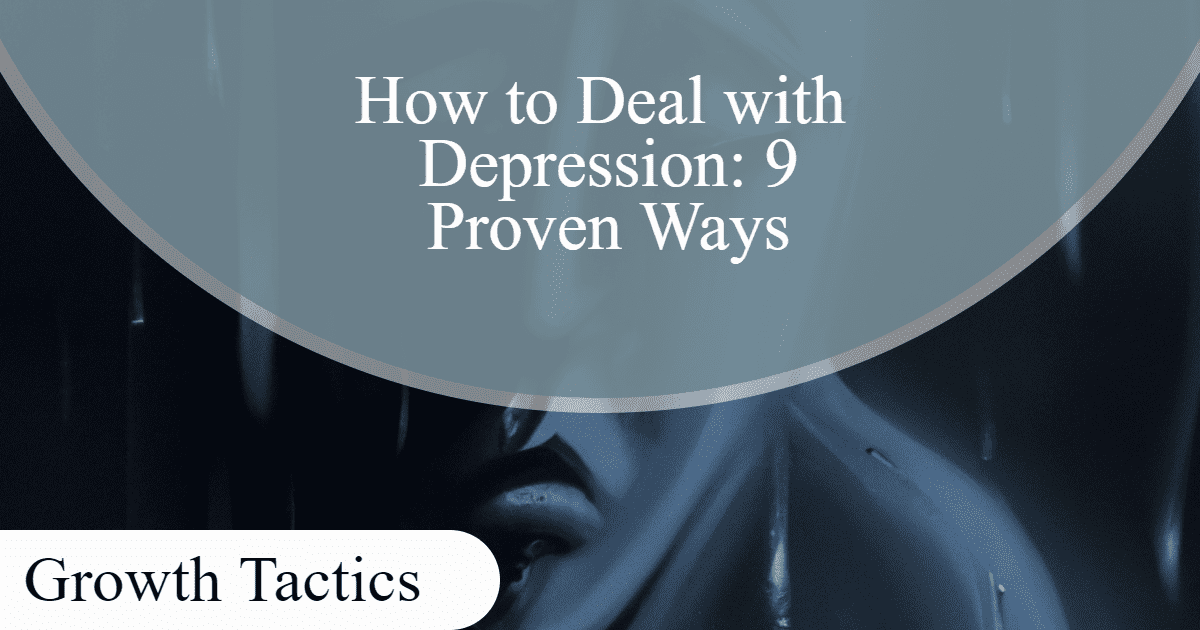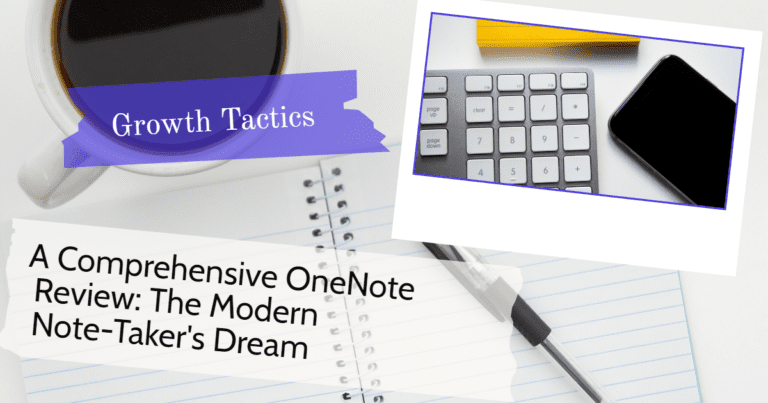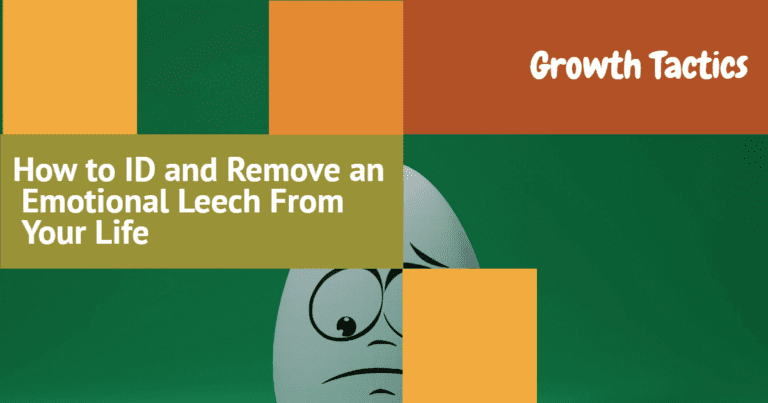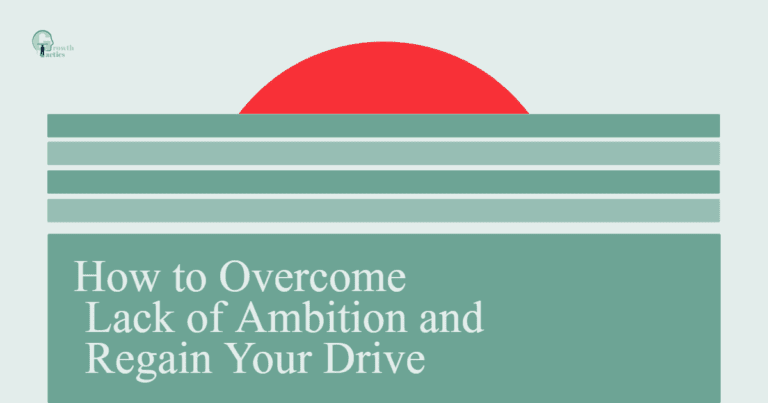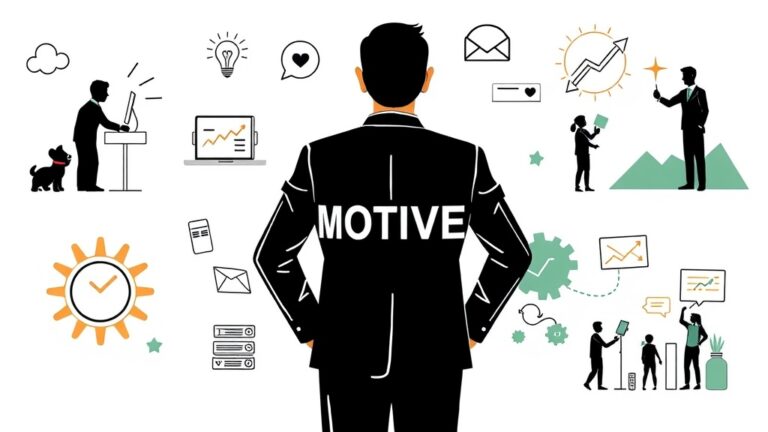It seems impossible to know how to deal with depression and sadness while we are going through it. We’ve all been there, it affects all of us at some point in our life.
We feel like there is no way out of our misery and despair or we feel like we are stuck in a black hole just drifting. We might even feel paralyzed to the point that anything we do seems pointless. All these feelings are natural at some point in everybody’s life.
It might be something you did or it could be something somebody did to you. It might even be a mixture of both. You may even be drifting through life with a smile on your face, hiding the pain you feel from the world. I’m here to tell you that you can make it out of depression.
Think about other low points in your life. Did you make it through those times?
Since you are still here to read this, I’m going to assume you did. That means your track record of making it through times of sadness and depression is 100% and you can make it through this one.
I can’t tell you what’s going to get you out of your funk, but I can offer advice on things that have helped me and many others tackle depression.
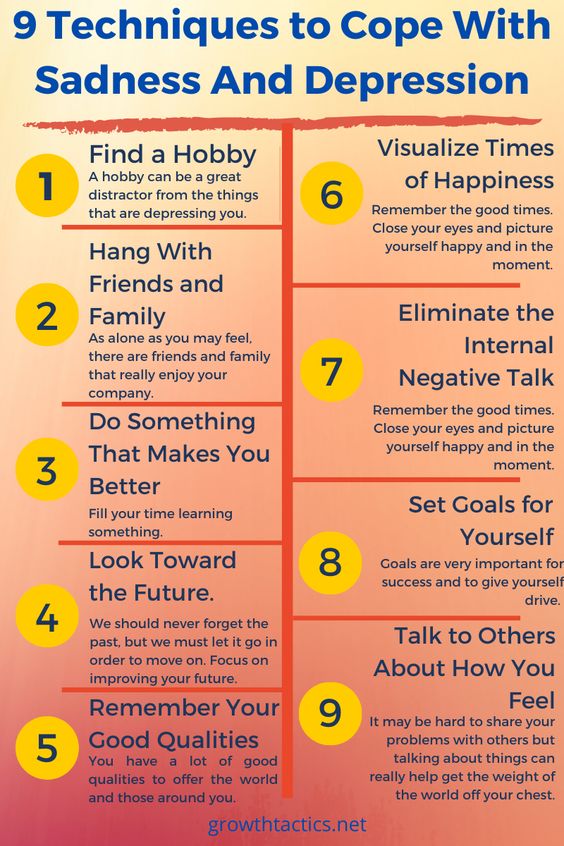
Jump To Section
Definition of Depression
Mayoclinic.org defines depression as “a mood disorder that causes a persistent feeling of sadness and loss of interest.” This persistent feeling is much worse than a case of the blues. It’s not something that can just be turned off. Sometimes it takes months even years to get through it. Depression can cause many mental and physical symptoms within our bodies, which we will discuss next.
Symptoms of Depression
Depression may present itself differently to you than it does to me.
Some people can put on a face and act like nothing is bothering them. While others, find it hard to do anything.
Some of the symptoms are:
- Feeling hopeless – Feeling hopeless can be a difficult and overwhelming experience, leaving one with a sense of despair and a lack of motivation to move forward.
- Reckless behavior – Reckless behavior can have serious consequences and can put oneself and others at risk.
- Trouble sleeping or sleeping too much – Difficulty sleeping or sleeping too much can be a sign of underlying physical or mental health issues and can have a negative impact on one’s overall well-being.
- Lack of energy – Lack of energy can affect one’s ability to perform daily activities and can be a symptom of various health conditions or lifestyle factors.
- Appetite changes – Changes in appetite, such as overeating or loss of appetite, can be a signal of physical or emotional distress and may require medical attention.
- Feeling numb – Feeling numb can be a coping mechanism for dealing with intense emotions or a symptom of mental health conditions such as depression or anxiety.
- Quick to anger or irritable – Being quick to anger or irritable can be a sign of stress or underlying mental health issues, and it is important to seek support and strategies for managing these emotions.
- Self-hating – Self-hating can lead to negative self-talk, low self-esteem, and mental health issues, and it is important to address these feelings with self-compassion and seek support from loved ones or mental health professionals.
- Increased anxiety – Increased anxiety can be a response to stress, trauma, or underlying mental health conditions, and it is important to seek support and develop coping strategies to manage these symptoms.
- Thinking about hurting yourself or others – Thinking about hurting yourself or others is a serious concern and requires immediate attention from mental health professionals or crisis hotlines to ensure the safety of all individuals involved.
You can experience one or many of these symptoms when you are going through depression. The first step is recognizing you are depressed. After you admit it to yourself, you can begin to get your mind into the right place.
Tips for Dealing with Depression and Sadness
These tips are not all-inclusive but like I said earlier they are things that have helped me through rough times.
1. Find a hobby.
A hobby can be a great distractor from the things that are bringing you down. Sometimes all you need is something to take your mind off the situation at hand. There are so many hobbies out there that you are bound to find something you enjoy.
Writing can be a great way to get things off your mind without having to talk to anybody about them. There are many ways you can get your thoughts on paper. You can write a journal, start a blog, or talk on a forum. The important part is to get your thoughts out.
Learning to play an instrument can be very entertaining and can help boost your confidence.
Drawing, painting, sculpting, or any other art and crafts can be a great hobby to pick up. You may even be able to make some extra money if you want to try and sell your crafts on sites like Etsy or Facebook Marketplace.
For more ideas on hobbies see 12 Best Hobbies to Help Fight Anxiety & Depression.
2. Hang out with friends and family.
As alone as you may feel, there are friends and family that really enjoy your company. Going out with them and doing something can help take our minds off our problems for a little while.
It can also help you realize that there are people out there that love you unconditionally. You can even invite your friends and family to do a hobby like the ones in the tip above.
If you really don’t feel like going out, you can always invite friends or family over and hang out at your house. You can play board games, watch movies, or just chat. Friends and family are always there to help you when you need them.
3. Stay busy with things that make you a better you.
Keep yourself busy so you don’t have time to dwell on the past. Look toward the future and find things that you can do to make yourself a stronger version of yourself in the future.
You can fill your time learning something. You can enroll in college and finally work toward that degree you’ve wanted. Learn a skill on the internet. Read books or blogs on many topics that make you a better you. You can also use your time to go to the gym and get into shape.
This not only helps you potentially look better but also, exercising releases endorphins putting you into a better mood.
For some great book ideas see 9 Books To Read If You Have Depression & Just Need A Little Help Making It Through The Day.
4. Don’t forget the past but look toward the future.
The past is typically what causes our sadness and depression. We should never forget the past, but we must let it go in order to move on.
Focus on the present and your future. Where do you see yourself in the future? Who do you want to be?
Use the answers to these questions to motivate yourself to start doing things now to make you who you want to be. We can’t change what has already happened or what we already did but we can change our future.
5. Visualize times of happiness.
It may feel like it’s been like this for a while, but times weren’t always bad, and they won’t always continue to be bad.
Remember the good times.
Close your eyes and picture yourself happy and in the moment. Allow yourself to be in that moment and feel what you felt and see what you saw. When you feel yourself sliding back to a negative thought, take a deep breath and go back to your happy memory.
6. Eliminate internal negative talk.
The way we talk to ourselves can really make or break our emotions. If we are constantly telling ourselves how bad we are, how ugly we are, how stupid we are, or any other negative thought, our mood will reflect how we feel about ourselves. When these thoughts start to creep in, think about the positive things you have to offer.
One thing you can do is take a step back and look at these qualities that we hate about ourselves and look at them objectively.
Is this something that everybody believes about us or is it something we have just manufactured in our heads?
If it is something that others believe about us, is it something we can change? If it is something you can change, use it as motivation to be a better person instead of allowing the talk to keep you down.
7. Think about all the good qualities you have to offer.
You have a lot of good qualities to offer the world and those around you.
Many times, we forget this fact in our moments of weakness, but it is true. A good way to remember this is to get a piece of paper and make a list of the good qualities we have to offer.
You can take it a step further by writing these qualities down on a sticky note and posting it in places you look at every day like the bathroom mirror or the door leaving the house. Whenever you see these notes you can read them out loud to remind yourself how valuable you are as a person.
8. Set goals for yourself and start working toward them.
Goals are very important for success and to give yourself drive. You need to perform some internal reflection on what you want to achieve in the short term and long term. These goals can be related to some of the tips above like working out, reading a book in the next week, or even a goal with a hobby you started.
These goals should be something you can achieve. Like the tip about the good qualities you have, you should write these goals down and post them in places you see every day. That way you can ensure you are striving to achieve your goals every day.
9. Talk to others about how you feel.
I don’t always like to bring others down or share my problems with others but talking about things can really help get the weight of the world off your chest. They may even provide insight that we can’t see from our current lens of the world. Many times, we don’t even need advice, just somebody listening to us and being there for us is enough to bring a little relief.
Friends and family are great people to talk to, but they are not your only option. You can chat with others going through or that have gone through similar situations online or in person in support groups.
Therapists are also an option if you would like some professional help. There is no shame in seeing a professional about problems you are having in your life.
Depression Hotlines
There’s nothing wrong with not being able to handle depression on your own. If you need help there are many hotlines that you can call and talk to somebody. Many of these hotlines are completely anonymous.
Phone Depression Hotlines
- SAMHSA’s National Helpline – 1-800-662-HELP (4357)
- National Suicide Prevention Lifeline – 1-800-273-8255 (TALK)
- The Samaritans – (877) 870-4673 (HOPE)
Online Depression Hotlines
Bottom Line on How to Deal With Depression and Sadness
The bottom line is if you are feeling sad and depressed, don’t just sit around and wait for it to go away. You may not always be able to control the way you feel but you can control the way you react to those feelings.
Take back control of your life and remember that you have made it through all the rest of the rough times in your life so there is no reason to believe that this time will be any different.
If you enjoyed this article, please don’t forget to share using the buttons below.

